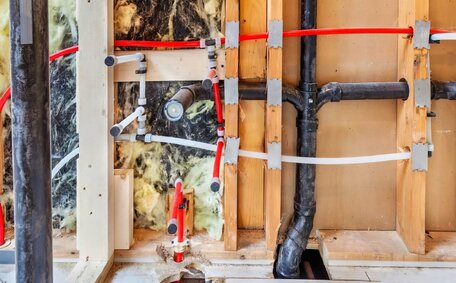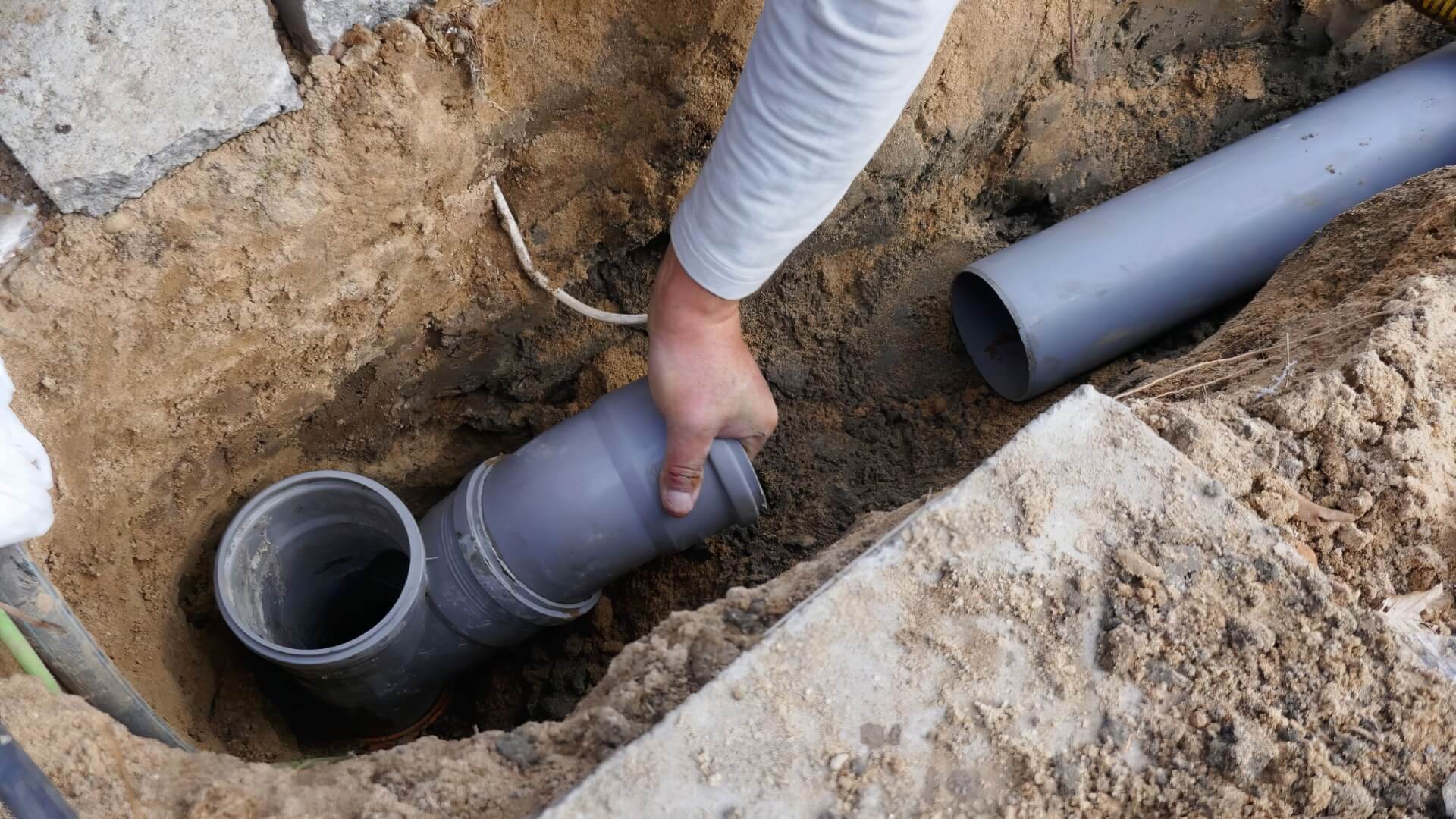Understanding Your Hot Water System
An efficient gas hot water heater is vital for daily activities like dishwashing and showering. Water heaters come in various forms, including electric, gas, solar, heat pump, and tankless models.
Water heaters function by either storing hot water in an insulated tank or heating it instantly in a continuous flow system.
Maintaining your water heater regularly is key to ensuring efficiency, performance, and safety. This includes inspecting components inside your system like pressure relief valves, anodes, and gas burner assemblies. Early resolution of minor issues can avert expensive future repairs.
With decades of experience, Penrith Plumbing are your local hot water experts you can trust for advice, repairs, and replacing hot water units in Penrith, Sydney. Contact us for professional hot water servicing to ensure your system’s efficacy.
Key Components and How They Work
Key components of hot water systems encompass:
- The water tank system, which is a large, insulated metal tank for holding heated water, ensures a consistent hot water supply. Good insulation around the tank system maintains hot water temperatures for extended periods.
- The heating element, responsible for warming water within the hot water heater. Solar hot water systems use solar collectors in conjunction with standard electric or gas heaters for consistent water temperature.
- The TPR thermostat, regulating temperature by automatically cycling the heating elements on and off.
- The anode rod, a sacrificial metal rod that corrodes to help prevent the inner tank from rusting.
- The temperature pressure relief valve releases water to prevent dangerous pressure build-ups and possible tank ruptures.
- Isolation valves to easily shut off water with maintenance tasks, like replacing components.
- Supply lines and fittings delivering water into the system.
Comprehending each component’s role aids in carrying out inspections and replacements to maintain your hot water system’s performance.
Sacrificial Anode Purpose and Replacement
The sacrificial anode rod, often referred to as just the "anode rod", is a crucially important part of maintaining your water tank. Made of reactive metals like aluminium and magnesium, the anode rod attracts corrosive elements in the water supply, causing the anode to gradually corrode instead of the inner tank.
This measure is very important for maintaining your hot water tank and preventing rust.
Replacing the anode rod every five years is recommended to sustain your hot water tank’s efficiency. Over time, the anode erodes away, losing its ability to protect the inside tank and ensure your water heater’s longevity. Replacing it restores thatrust prevention for your tank.
A heavily corroded rod must be substituted with a new, identical one, using thread tape for a secure fit.
Engaging Penrith Plumbing for anode rod replacement guarantees proper fitting and eco-friendly disposal. Email us or call to schedule an anode replacement.
TPR Valve Testing and Safety
The TPR valve is a critical safety feature present in all hot water heating systems. Acting as a pressure 'release valve’, it opens to safely venting hot water if the temperature or pressure levels build up inside your water heater tank.
This protects the tank from what could be a dangerous build-up that could lead to explosions, and that’s why it’s essential the TPR valve needs regular checks. It is important to test your TPR valve every six months to verify its proper function. Testing involves lifting the lever at the top of the valve to release little amounts of water, confirming it can open.
It’s critical not to attempt heater maintenance on your own.
Regularly inspect the outlet pipe from the TPR valve to ensure it drains safely. Obstructed pipes prevent proper venting of hot water, rendering the relief valve useless. Keeping the TPR on your unit operational is vital for safety.
Routine Maintenance Checks and Steps
To maximise efficiency and longevity of your hot water system, We suggest adhering to the following maintenance routine:
- Biannually: Test the TPR valve and drain cold water to clear sediment build-up.
- Triennially: Inspect supply lines and fittings for potential leaks or cracks.
- Every five years: Replace the sacrificial anode rod to continue protecting your tank from rust and corrosion.
- Every 3-5 years: Inspect heating elements, thermostats, insulation and other components. Replace any worn parts.
- At five-year intervals: Consider installing a new hot water system if necessary for your home’s requirements and optimal efficiency.
Following these maintenance tips for your hot water heater helps prevent issues in the future, ensuring consistent performance and supply.
For specialist servicing of your hot water unit in Penrith, the licensed technicians at Penrith Plumbing are ready to assist.Contact us or call 1300 349 338 to discuss your hot water system’s maintenance needs.
Flushing the Tank and Draining Sediment
Over time, sediment from mineral deposits in the water supply builds up at the bottom of the water unit’s tank, which can lead to reduced efficiency. We recommend flushing your hot water system every six months to drain out sediment.
Start by switching off your water heater’s power, ensuring it’s fully deactivated, and then attach a hose to the drain valve spigot. Open the drain valve and let water flow out into buckets or an external safe drain area until water runs clear.
If not replacing the anode, you can still flush the tank through the inlet and outlet pipes as part of your system maintenance. Close the isolation valve and open any pressure valves to safely drain water into buckets. Thoroughly flush until the drained water is sediment-free.
Routine flushing improves efficiency and prevents sediment damaging valves or heating elements. For comprehensive maintenance or support with gas and water shutoff for your tankless heater in Penrith, Penrith Plumbing can help. Email us or call 1300 349 338.
Optimizing Temperature Settings
Optimal temperature for your water system is crucial for efficiency, safety, and energy cost control. We recommend setting your thermostat to approximately 49°C (120°F) every few months. This keeps the water very hot, reducing the risk of scalding while still effectively killing germs and bacteria.
Locate the thermostat on your pump water heater and use a screwdriver to adjust the temperature gauge. Raise or lower the setting carefully, testing with a thermometer to get as close to 49°C as possible. Keep testing and tweaking as needed.
If you have a system with a tempering valve, adjusting the water temperature and flow rate via service valves can help optimise hot water delivery. Contact Penrith Plumbing if unsure - optimising temperature settings keeps your hot water system operating safely and efficiently.
Spotting Issues and Knowing When to Call a Professional
There are some common signs your hot water heater needs professional attention from a licenced plumber like Penrith Plumbing:
- No hot water at all or water not getting hot enough
- Strange noises like banging or rumbling coming from the unit
- Visible leaks, cracks or rust spots on components
- Weak or sporadic water pressure
- Temperature and pressure relief valve constantly dripping
- Higher than normal energy bills from an inefficient system
Attempting DIY repairs on issues like electrical faults or gas leaks can be extremely dangerous. Always call your professional plumber. For other issues, let Penrith Plumbing do an inspection before you attempt any fixes.
Don’t delay on getting hot water system issues checked. Catching problems early prevents more serious breakdowns requiring expensive repairs or full unit replacement.
To ensure optimal operation of your hot water system, Penrith Plumbing offers affordable inspections and repairs. Email us or call 1300 349 338 to book a hot water servicing appointment.
Extending System Lifespan with Regular Upkeep
Performing routine maintenance can maintain your hot water heater, including checking Checking your gas connections is key to maximising the lifespan of your hot water system. Well-kept units can ensure effective operation and extend your system’s lifespan well beyond 10 years, compared to 6-8 years for poorly maintained ones. Keeping your hot water system running with proper servicing prevents minor issues from escalating into major problems or necessitating full unit replacement.
We recommend booking an annual tune-up and inspection with a licensed plumber like Penrith Plumbing. A technician checks all components, flushes sediment, replaces worn parts, and ensures optimal settings for efficiency. Professional servicing of your hot water system can be more cost-effective than handling emergency repairs down the line.
Combine annual check-ups with routine tasks such as checking for leaks, biannual TPR valve tests, sediment removal by draining water, and anode replacement every five years.
Don’t wait until you have no hot water to call for repairs. Proactive maintenance can significantly cut repair costs and prolong the life of your hot water system.
For specialised scheduled maintenance or assistance with any hot water system issues in Penrith, contact our team. Email Penrith Plumbing or call 1300 349 338 to discuss servicing needs that maximise efficiency and longevity.






